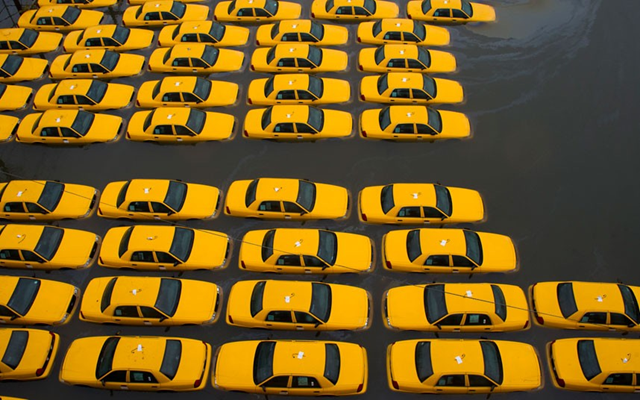Climate change is here, ready or not. So what now?
By Eugene Linden
30 March 2013 (US NEWS) – Welcome to a warmer, wilder world! We need to stop debating and start accepting that climate change is happening. Eugene Linden on how adaptation and market forces (hint: insurance companies) might temper the coming catastrophe. To paraphrase Hemingway, climate change first comes gradually and then all at once. Now that the negative impacts of changing climate have become undeniable, there is also a dawning realization that—at this point—climate change is unstoppable. This puts into wistful perspective the developing consensus that we should do something about it. Witness Obama’s bold statement in the State of the Union Address that he is prepared to use executive powers if Congress doesn’t act. A cautious politician, it’s doubtful that he would have been so bold unless he felt that he had the public’s backing. And it’s great—except it’s too late. We’re in for it, and the rash of extreme weather events is giving us a taste of what “it” might be. The time to act was at least 25 years ago—back when George H.W. Bush promised to take action (he deep sixed that promise almost immediately after his inauguration). Given the lag in the climate system, the extreme floods, droughts, storms, storm surges, and tornado swarms are partly a response to greenhouse gas levels in the atmosphere of past years that we have since exceeded. The accelerating release of the greenhouse methane—the crystal meth of global warming—from the melting permafrost in the warming Arctic will continue regardless of whatever actions the developed nations agree to take in the coming years. It’s quixotic to think that humanity can take any action to reverse the overtaxing of the oceans’ ability to absorb CO2 (evidenced by the seas’ increasing acidity) on any timeframe meaningful to those living today. The most unsettling thing about the accelerating pace of extreme weather events is that they may signal that even as the momentum in the rise of CO2 makes it difficult to reverse the cause of climate change, we are entering a new period in which change itself comes ever more rapidly. The retreat of the Arctic sea ice shows us how this works. The white surface of sea ice reflects about eight times the heat of open water. So, as the ice retreats, heat that previously was reflected from the surface and trapped below the ice is now absorbed and released, vastly amplifying the pace of change. So how should we respond? Most obviously, we should stop making things worse. Tax penalties, tax credits, and import tariffs can nudge consumers, producers, and exporters towards reducing emissions without wasting more years on fruitless international negotiations or creating cumbersome new bureaucracies. Second, we need to start adapting to the changes that are inevitable. Emergency loans and other financial aid to redress the billions in damage from extreme weather of the past couple of years already pressure budgets from the federal government on down. Hurricane Sandy showed the Northeast, for instance, where the vulnerable spots were. If someone wants to rebuild in one of those areas, so be it, but there is no reason that taxpayers should subsidize individual folly. The rates a private insurer would extract to enable a person, corporation or farmer to rebuild or replant in vulnerable areas would largely accomplish the necessary relocations—again with no bureaucracy. Most importantly, we need leaders with the courage to steamroll the deniers and the vested interests. After a very short respite greenhouse gas emissions are getting worse. The Great Recession largely stalled U.S. greenhouse gas emissions for several years (though globally CO2 increased thanks largely to China). The respite ended in 2012, which saw the biggest jump in CO2 in the atmosphere in this millennium. The journal Science just published a reconstruction of past climate that showed that current temperatures are the highest in 4,000 years. Still, this won’t convince the deniers – nothing will – and the U.S. and the rest of the world are going to have to act over the loud objections of vested interests just as the government took action on smoking over the objections of the tobacco lobby. [more]
Climate Change is Here, Ready or Not. So What Now?
